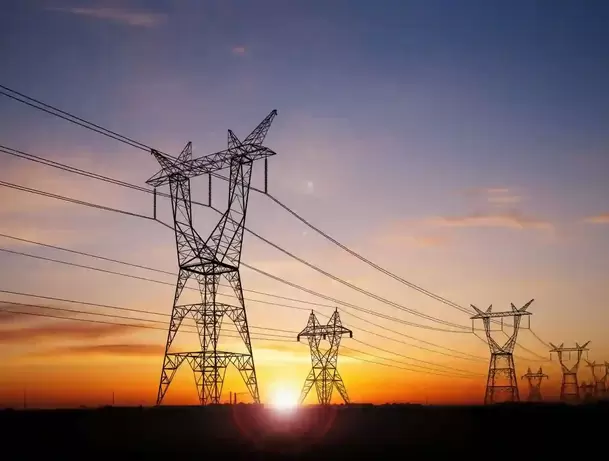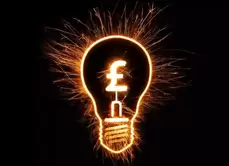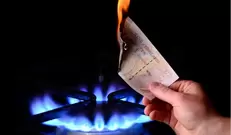What to do when there is a power cut
Save £££ on your energy bills |
|
Power cuts can be pretty daunting.
If you don’t know who to call, what to do or what compensation you might be owed when the lights go out, you really will be left in the dark. But don’t worry, by the end of our guide you’ll be ready to tackle power cuts like a switched-on energy consumer. Here’s what you need to know. Power cut - first steps First things first, diagnose the problem. Check the fuse box to see if one of the fuses hasn’t tripped and, if you use one, check your prepayment meter to make sure it hasn't run out. If that’s not the problem, pop round to your neighbours and see if the lights are out there as well. If they are, it’s likely to be a network related power cut. Grab a torch and turn off electrical appliances and all lights at the switch (leave one on so you know when the power is back) – better safe than sorry! |
|
|
Who should I contact when the power cuts out?
Yes, it’s your electricity supplier that bills you for energy, but it’s a Local Distribution Company that handles that supply. These companies must give customers at least two days’ notice of planned power cuts. Who you need to call depends on where you live in the country as each region has a different supplier. London, for example, is managed by UK Power Networks, which can be contacted on 0800 316 3105. To find your network operator, enter your postcode into National Grid’s handy online tool; it should also be listed on your bill. The simplest way to get in touch with the right people when the power goes out, however, is by ringing 105. It’s free to call and will put you straight through to the network operator in your area. In the case of emergencies, when an immediate response is required, ring 999. If you're not happy with the service you're getting from your energy company, see if you could save a shedload of cash by switching to a new deal on A Spokesman Said. |
|
|
Am I entitled to compensation?
When the lights go out, it pays to know your compensation rights. Ofgem, the industry regulator, has set out pretty clear guidelines on how quickly companies should respond to power cuts and what customers are owed. If your power cut lasts longer than 24 hours, you could be in line for compensation of £75 plus. The amount hinges on how long you’ve been without power and the severity of the weather. So, if a tsunami has returned your village to the Stone Age, and you’ve been burning furniture for weeks to stay warm, expect a fairly big pay-out. It’s worth bearing in mind that you must submit any compensation claim within three months of the power being restored and that the compensation does not cover subsequent financial losses. Severe weather If the lights go out because of a storm, the network operator has 24 hours to restore power. If they fail to do so, affected customers can claim £70, plus an extra £70 for each 12-hour period the power is not restored (capped at £700). For a particularly severe storm, the £70 fee still applies, but won’t kick in until you’ve had 48 hours without electricity. Normal weather The general rule is that distribution companies have 12 hours to restore power if it fails in normal weather conditions. This can, however, vary depending on the number of households affected. Domestic customers can claim £75 if the power stays off for more than 12 hours, and business customers £150. For each 12-hour period the supply is out, a further £35 can be claimed (up to £300 if more than 5,000 homes were affected). Were you notified of planned outages? As we said earlier, distribution companies must give two days’ notice of any planned outages. If they didn't, or gave you the wrong day, you can claim £30 (£60 for business customers). |
|
|
When is my compensation due?
Distribution firms have ten days to cough up any compensation you’re owed (expect if the outage was caused by severe weather, in which case refunds must be paid in reasonable time). If they’re late, you’re entitled to a further £30. My power keeps cutting out This is where it gets a bit fiddlier. Compensation for recurring outages hinges on things like frequency, failures because of the distributor’s fuse or supply shortages. Typically, you’re owed compensation of between £30 and £75 if you’ve suffered at least three hours of power loss, on four separate occasions, over a 12-month period. What should I do if my energy supplier disconnected me? It’s very unlikely your power cut is because your supplier has disconnected you. Legally, your supplier must give you 28 days written notice after you last bill if it plans to disconnect your supply and remind you again seven days before disconnection. But it does happen. If you’re worried you’ve been disconnected, ring your supplier and ask for clarification. Useful numbers to have to hand are Ofgem on 020 7901 7295, and Citizen’s Advice on 03454 04 05 06. |
|
You could save up to £497 on your energy bills! |




